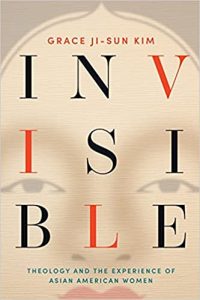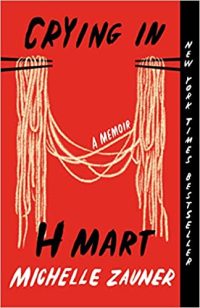By Jin H. Cho, Leader of C4SO’s Rev. 7:9 Task Force
Over the years of engaging in conversations about race and justice in America, I’ve found myself repeating the statement, “You know I’m not white, right? I’m not black, but I’m not white.” Yes, humor is intended in this rather obvious statement—and usually people will laugh (which is more than I can say for most of my jokes)—but I am pushing back against an assumption that I am describing race and racism as an observer, rather than as a member of a community experiencing it.
Certainly, I have not experienced the sort of racism my brothers and sisters in the Black community have and do. However, the racism I experience is both similar in its exclusion, and different in that it includes feelings of being made perpetually foreign, forced to live a provisional existence. Understanding the distinct Asian American experience benefits all of us, providing insights into how race functions in our country. I’m happy to bring some of these experiences to the forefront by providing a very curated list for the bookworms in our diocese during C4SO’s celebration of Asian American and Pacific Islander Heritage Month.
In my opinion, these books shed great light on the Asian American experience, especially for the Church. My goal is not to overwhelm you with a comprehensive bibliography, but to connect different types of books with different types of readers. The books are, admittedly, limited in scope as they also function as sort of “my favorites” list, and are all books I have actually read—something I can’t say about all the titles on my bookshelf!
 Asian Americans and the Spirit of Racial Capitalism
Asian Americans and the Spirit of Racial Capitalism
By Jonathan Tran
Jonathan Tran teaches theology and ethics at Baylor and was a student of Stanley Hauerwas at Duke. His argument here is that any fair engagement with the Asian American experience of racism does not fit the common framing of race conversations, but by understanding race and its connections to our political economy, we can begin to see how race has been, and continues to be, manipulated for capitalistic purposes, even in the Church. The Church, however, remains the hopeful community to subvert the powers of racialized capitalism for our world. This is an eye-opening reframing of our thinking about race in America.
The densest read on this list, possibly the most academic. If you like slow, thoughtful theological readings, this one is for you. Worth the 368 pages.
 Our Unforming: De-Westernizing Our Spiritual Formation
Our Unforming: De-Westernizing Our Spiritual Formation
By Cindy Lee
Cindy S. Lee has both practical creds—spiritual director, pastor, D.Min.—and academic chops—Ph.D., teaching at Fuller Seminary. Her writing here is bold and wise—she helps us see how learning almost exclusively from white, male authors has limited our understanding of spirituality. By bringing in often marginalized, diverse voices, she outlines a more robust spirituality that feels at once more biblical and just. One powerful insight—what if spiritual formation was not for the benefit of the self, but for the sake of the larger community? How might we pay attention to the pains and the sufferings of our neighbors differently?
If you are into spiritual formation and have ever felt it limiting, if you are leading spiritual formation in a diverse setting, or if you like being challenged by new ideas, you should read this book. A fast-moving 142 pages.
Join C4SO’s AAPI Heritage Month Book Study of Our Unforming.
 Invisible: Theology and the Experience of Asian American Women
Invisible: Theology and the Experience of Asian American Women
By Grace Ji Sun Kim
This book is part theology, part cultural anthropology and part memoir. It could also be described as a deeply personal theology in “the-most-personal-is-the-most-universal” sort of a way. Whatever the category, this is a deeply moving and powerful work that reclaims the stories of women who have experienced “invisibility” and “erasure.” The last chapter, “Toward a Theology of Visibility,” is a powerful declaration of hope. Grace Ji Sun Kim is a professor of theology at Earlham School of Religion in Indiana. There is something powerful about learning the stories of people made invisible by our society.
Sort of a cross between a memoir and a theology book. A fast-paced 261 pages.
 Crying in H Mart: A Memoir
Crying in H Mart: A Memoir
By Michelle Zauner
This book spent over a year on the New York Times bestseller list and is being made into a movie. Michelle Zauner is the leader of the indie-pop band Japanese Breakfast, and is sort of a poet at heart. She writes this moving memoir about losing her Korean mother to cancer and her struggle to reconnect with her—and her Korean heritage—through food. This is not a Christian book, nor even a particularly “spiritual” one for that matter, but it is one of those books make you appreciate life more deeply. I think this is sort of the best way to appreciate different cultures—in the intricacies of messy relationships, in the universality of the strange particularities.
This is probably the most “summer read” type of a book on this list… yeah, you can totally read it at the beach. 256 pages.
 The Sympathizer
The Sympathizer
By Viet Thanh Nguyen
Another book in the “not-Christian, not spiritual, but deeply human” category. If you are a fiction reader, you need to read this book. It won the Pulitzer Prize in 2016, and author Viet Thanh Nguyen has sort of won every major “genius” award or grant there is (he also teaches English at the University of Southern California). The book tells the harrowing tale of a nameless Vietnamese double agent—The Sympathizer—starting in the final days of the Fall of Saigon and ending with his life as a faceless immigrant in Southern California. Like the protagonist, this book is much more than what it presents itself to be, providing penetrating insights into the promises of our country.
This one is for all the literary fiction readers out there. Viet Thanh Nguyen is also one of the best social critics working from the Asian American perspective. 384 pages.
Have you read any of the books on this list? Let us know your thoughts.
 The Rev. Jin Cho is a C4SO priest and Leader of the Revelation 7:9 Task Force for Racial Diversity and Inclusion. He received his doctorate of ministry from Fuller Seminary, writing on “Race, Evangelicalism, and the Local Church.” He has 20-plus years experience as a pastor and a church planter, but in recent years consults with churches and non-profits to have courageous conversations around various justice issues. He and his far more interesting wife Esther have been married for 25 years, and they have two extremely extroverted middle-schoolers.
The Rev. Jin Cho is a C4SO priest and Leader of the Revelation 7:9 Task Force for Racial Diversity and Inclusion. He received his doctorate of ministry from Fuller Seminary, writing on “Race, Evangelicalism, and the Local Church.” He has 20-plus years experience as a pastor and a church planter, but in recent years consults with churches and non-profits to have courageous conversations around various justice issues. He and his far more interesting wife Esther have been married for 25 years, and they have two extremely extroverted middle-schoolers.






